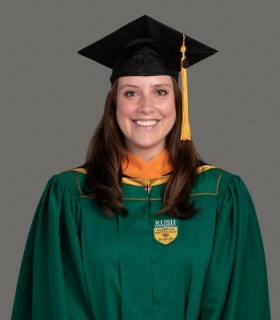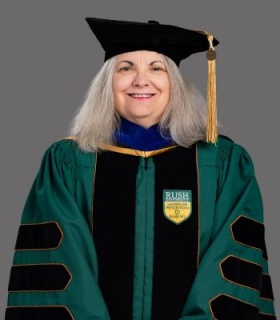Saturday, April 27, 2024 at 2:00 p.m.
We are excited to invite the RUSH community to attend RUSH University’s 52nd Commencement ceremony on Saturday, April 27, 2024 at 2 p.m. at the Credit Union 1 Arena to recognize the graduating class of 2024.
Please mark your calendars to help us recognize our students’ accomplishments. For additional commencement details, planning information and safety protocols please see below and direct any commencement related questions to RU_Commencement@rush.edu.
Congratulations graduates! We look forward to celebrating you and your tremendous achievements!

Get ready for Commencement
Meet our 2024 Commencement Speakers

Student Speaker
"To me, it’s so clear I was always meant to be a nurse. It’s who I am at my core."

University Marshal
"Your critical thinking skills are more important than your knowledge."

